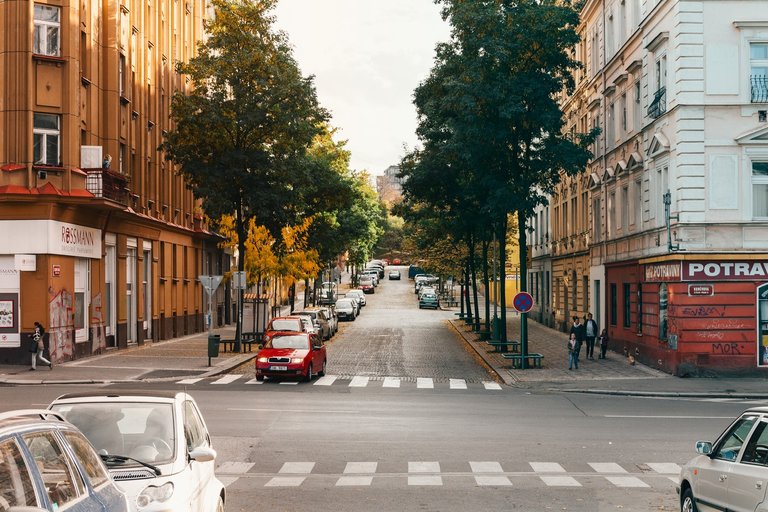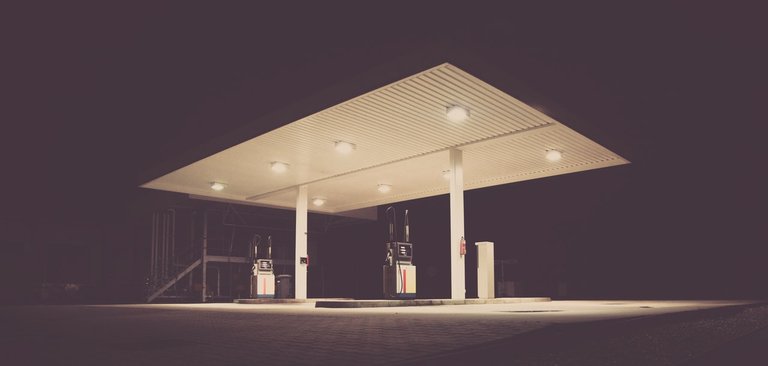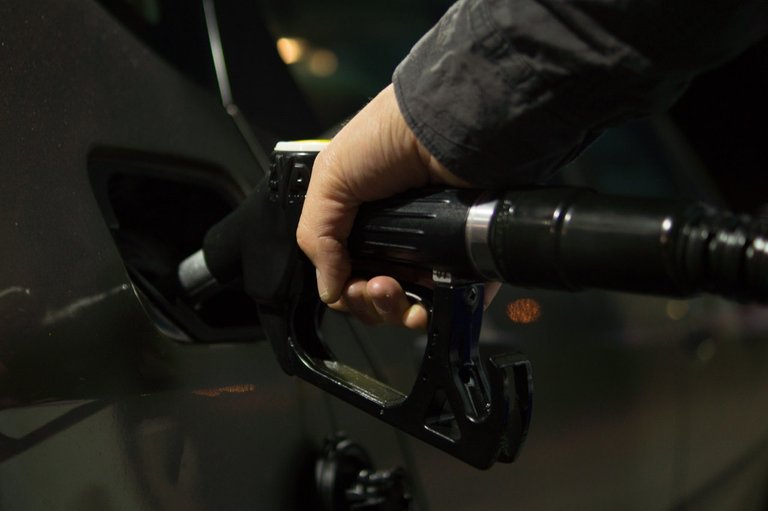
Gas prices continue to slowly inch upwards day by day. If getting a more economical vehicle isn’t an option for you, there are a few things you can do to get better mileage. The more you apply these eco-friendly trips, the longer it will be between fill-ups and the more money you'll have in your pocket.
Green Lights
One of the quickest ways to burn through your gas tank is by gunning it like a bat out of hell any time the traffic light turns green. Contrary to what my 5-year-old self might have thought, it’s not a race to see who can get away first. Putting the pedal to the metal just eats up gasoline more quickly and reduces your MPG.
Instead, ease out and take a quarter to half mile to get up to speed (depending on the speed limit). The more gradually you can accelerate, the better your mileage will be.

Air Conditioning/Heating
In the heat of summer and cold of winter, it’s tempting to blast the air to feel comfortable. Unfortunately, all that does is steal MPG away from you. Be aware of exactly when your car feels like it’s a reasonable temperature and reduce the AC/heat. Whenever it feels nice outside, try and have your windows down instead of using the car’s temperature controls. The less you use it, the more miles you’ll get per tank.

Red Lights
Many people are in the habit of driving up to a red light at full speed and braking at the last moment. This doesn’t do much to save gas, though. The better option is to coast up to the light from as far back as you can see it turn red. Chances are, you’ll get there right as it’s changing to green and never have to come to a complete stop. You can do the same thing (coast) when exiting the freeway to reduce gas usage.

The Freeway Speed “Sweet Spot”
The last gas-saving tip I’m going to share is about reducing your speed on the freeway. Most cars have a “sweet spot” between 55-65 miles per hour. If you go above this speed, your MPG starts to decline rapidly. Take care not to impede traffic by going too slow, but hovering in this speed range is going to get the most out of each drop of gasoline.
This topic particularly attracts my attention, I will explain why. I am Venezuelan, and in my country gasoline is subsidized by the state and it is very economical, in fact, it is the cheapest in the whole world. This particularly brings many problems since it means a huge expense for the state, and it favors that there is gasoline traffic to neighboring countries, and much more money is lost in that way. Also, there is less awareness of savings in this aspect, information like this, in my country would not have much impact, but I recognize the importance of it, since the cost of fuel worldwide is very high, and we must consider it , but the economy of the person would be very affected. They are different realities. Without going into details of the benefits that the reduction of the use of fuel brings for the environment, for the world. Excellent theme, very good post.
Wow, that's really interesting, I had no idea the landscape of gasoline in Venezuela. Sounds like there's certainly no motivation to conserve fuel when it's so affordable. But that proposes a huge environmental problem in addition to congested streets. I hope we can find economical alternatives to fuel in the near future.
If I didn't have to have a vehicle, I wouldn't have one. Period.
I've done the math and I would save about 9k per year (gas, insurance, maintenance, repairs --not including a car payment if you had one). Your mileage may vary (no pun intended).
Lately, I've been staying in that 55-60mph range (sweet spot for my vehicle), taking my foot of the gas completely when going downhill and slowing up considerably before red lights whenever possible. Sometimes it's not always safe to do that, but when you can it definitely helps.
Same here—they are one expensive necessity. And for most people, it's just that: necessary. For work, due to urban sprawl, etc. What car do you drive? I own a Prius C Three and it's kind of a game with myself to get the highest mileage possible. You can see the direct result of every driving decision you make either decreasing or increasing the MPG.
It's just a regular car. Not a hybrid.
I agree with most of these, just a caveat on the AC vs windows down. There has been research, and it goes both ways. Essentially, rolling the windows down increases the air resistance on your car, reducing your gas mileage. The question being, does the AC use more gas, or the air resistance from rolling down the windows.
Mythbusters did a segment driving an SUV at 55mph around a race track, and found the AC witht he windows up was more efficient than rolling down the windows:
But mythbusters then did another test (with more flawed testing standards in my opinion) and found the opposite result, with the windows being rolled down the better option:
GM and SAE also did a test (in 2004, AC could be more efficient by now, and cars could be more streamlined to have less resistance with the windows open) finding that rolling down the windows was more efficient at all tested speeds: http://www.businessinsider.com/car-fuel-efficiency-ac-air-conditioner-on-windows-down-open-2013-9
At the end of the day, it seems this point is still in contention, and it would require a large, well done test to give an accurate answer.
Thanks for sharing! I didn't realize there was another argument out there about this. I'm sure you're right about certain vehicles being more streamlined for efficient airflow. I wonder if there's a certain speed at which this becomes more relevant? For instance, at 35 MPH, it's better to have the windows down, but as soon as you get to 55 MPG, the drag starts to take away from the MPG.
All I can say for certain is that in my experience, having the AC on (with my Prius C Three hybrid) always gives me worse MPG. I haven't noticed that leaving the windows down affects anything significantly enough to notice a decrease. That being said, it's also possible I have this bias since I didn't know it could be a wash and paid less attention. So many factors! lol